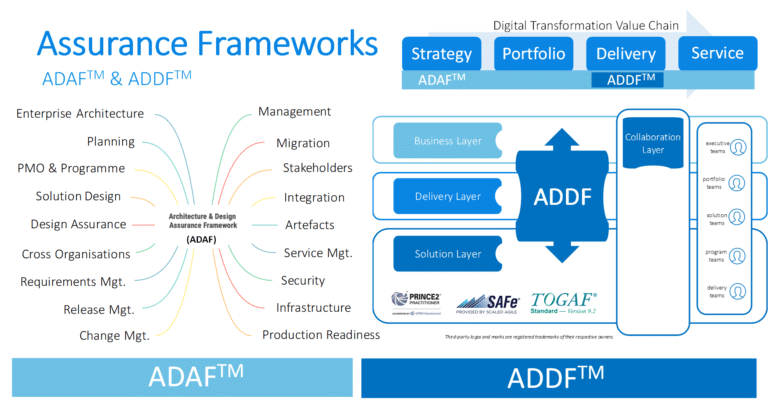TheOpenArch Blog Archive
NEW POSTS EVERY WEEK !
Assurance, which is the continuous assessment of all aspects of the Programme performance is key to a successful Digital Transformation. Governance is the framework within which timely informed decisions are made. To achieve the Business Objectives, the Digital transformation Programmes must be assured by governance frameworks.
Do you really need Architecture Deliverables in Agile Transformation? The short answer is yes. Often, organisations that use Agile to deliver large transformation programmes come unprepared and have to spend valuable time and effort in redefining processes and artefacts to govern the programme delivery. This is also true for Architecture teams that are used to steer far from delivery activities and spend most of their time in defining roadmaps to their strategic architecture vision. In this article, we'll drill down in more detail on the Architecture and Design deliverables required to effectively govern a large Agile Transformation.
"Agile Architecture", as defined in the © Scaled Agile framework, "is defined by a set of values, practices, and collaborations that support the active, evolutionary design and architecture of a system. This approach embraces the DevOps mindset, allowing the architecture of a system to evolve continuously over time, while simultaneously supporting the needs of current users."
After the Pandemic struck, the world reliance on digital solutions has increased dramatically. Many businesses that were relying mostly on offline channels and manual labour were brought to a halt. Businesses that were already digitally-enabled saw a dramatic increase in volumes, making some Telecom and Retail organisations live "every day just like Christmas day". The Pre-pandemic digital transformation strategy was mostly focused on cost-optimization, increasing productivity or gaining a competitive edge. However, the effect of the Covid-19 pandemic has refocused minds towards maintaining essential services and supply chains, enhancing resilience, reducing human reliance with an increase in process automation, and also the development of new business sectors. Organisations see digital transformation as an effective response to this crisis.





